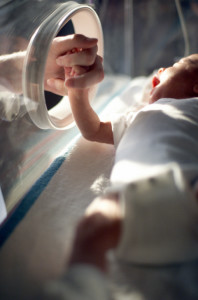Lawsuit Alleges Brain Damage at Birth Caused by Hospital Negligence
 A mother plaintiff has filed a lawsuit in U.S. District Court in Puerto Rico, alleging a series of errors in the delivery room led to her child’s brain damage at birth. Today, the plaintiff claims the child is still severely disabled and unable to care for himself as a result of those delivery room errors and failure of the staff to properly care for her and her child during labor and delivery.
A mother plaintiff has filed a lawsuit in U.S. District Court in Puerto Rico, alleging a series of errors in the delivery room led to her child’s brain damage at birth. Today, the plaintiff claims the child is still severely disabled and unable to care for himself as a result of those delivery room errors and failure of the staff to properly care for her and her child during labor and delivery.
Hospital staff cited for negligence
This lawsuit, filed on August 19, claims hospital staff, including the physicians overseeing the labor and delivery, made a laundry list of negligent acts and errors that contributed to the birth injuries suffered by the child. Specific allegations include failure to identify shoulder dystocia during delivery, failure to perform “adequate and timely resuscitation” upon the birth of the child, and failure to properly monitor and treat the baby both during and after delivery.
The mother plaintiff states in the complaint that she was admitted to Hospital Buen Samaritano on September 27, 2012, at 36 weeks of gestation. The plaintiff had made an appointment with her obstetrician that morning because she was feeling intense pelvic pressure and fluid secretions. At the time, her physician noted the plaintiff was showing the early signs of labor and referred her to the hospital for labor induction. The induction was started early in the afternoon of September 27.
Medical records allegedly altered
The specifics of the labor after that point are uncertain, since the plaintiff was unable to obtain complete medical records from the hospital. Upon request of said records, the hospital released a file that had been “clearly altered” and continues to be incomplete to this day, according to the plaintiff. The plaintiff recalls that despite persistent pushing during labor, the baby did not appear and hospital staff attempted to use a vacuum device to remove the baby without success.
After much time and many manipulations by the hospital staff, the baby was finally delivered. At the time of birth, the baby was reported to have no color and no response. The baby was given oxygen in the delivery room, but did not respond. Attempts to intubate the baby at this time were unsuccessful. The baby was taken to the Intermediate Care Nursery with a diagnosis of perinatal asphyxia and respiratory distress syndrome.
The same day, the baby was transferred to the NICU at Hospital de Concepcion by ambulance for more specialized treatment. The baby remained at that hospital until October 22, 2012, where he was treated for clinical sepsis, respiratory failure, perinatal asphyxia, seizures, jaundice and other complications. At a later time, the plaintiff realized that the baby had not been given proper treatment at Hospital de Concepcion, which contributed further to his brain damage and future developmental delays.
Injuries will persist for lifetime
Today, the plaintiff claims the child still suffers from a number of conditions that could be related to cerebral palsy, including muscle abnormalities, developmental delays, visual impairment, hearing loss and seizure disorders. The damage appears to be permanent, which means it is unlikely the child will ever be able to care for himself and will require medical and daily care over his lifetime.
The plaintiff is seeking multiple damages in this lawsuit, on behalf of herself, her child and the father of the child. The mother is alleging her child’s brain damage at birth was directly caused by doctor negligence and malpractice of the hospital staff.
- Johns Hopkins Children’s Center, Perinatal Asphyxia, http://www.hopkinschildrens.org/perinatal-asphyxia.aspx
- Mayo Clinic, Microcephaly, http://www.mayoclinic.org/diseases-conditions/microcephaly/basics/definition/con-20034823
- National Institute of Neurological Disorders and Stroke, NINDS Hypertonia Information Page, http://www.ninds.nih.gov/disorders/hypertonia/hypertonia.htm
- CerebralPalsy.org, Signs and Symptoms of Cerebral Palsy, http://cerebralpalsy.org/about-cerebral-palsy/sign-and-symptoms/

 Resources
Resources
 Resources
Resources

